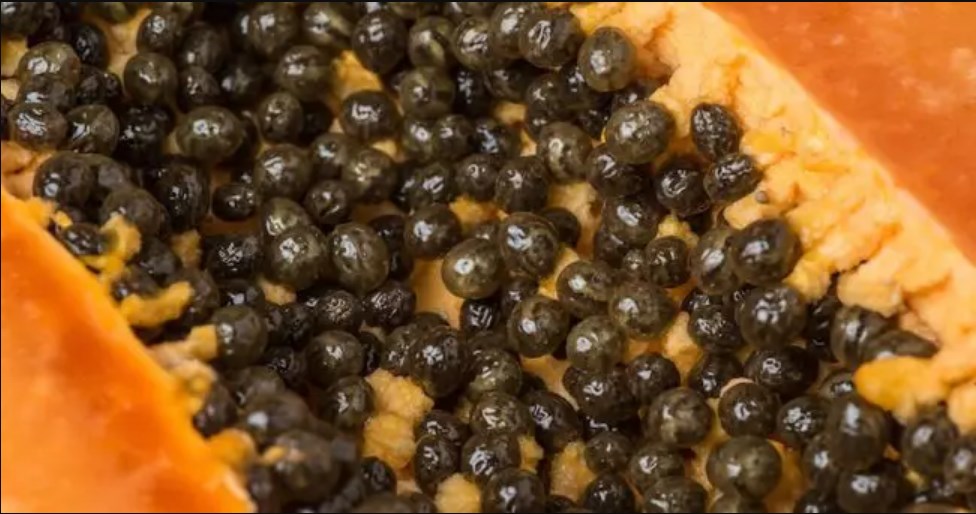Papaya is an incredibly nutritious fruit, full of anti-inflammatory properties. It lowers blood sugar levels, fights heart disease, helps digestion, and heals wounds.
Yet, only a small number of people are aware of the numerous health benefits of the crunchy seeds of this fruit, so we give you several good reasons to stop throwing them away:
Reduce Inflammation
These healthy seeds are rich in twp anti-inflammatory enzymes, papain, and chymopapain, that fight inflammation in the body and soothe the symptoms of gout, asthma, joint pain, and arthritis.
Lower High Blood Pressure
The leaves and seeds of papaya are loaded with carpainen, a compound that improves heart health, and lowers a systolic, diastolic, and mean arterial blood pressure.
Improve Digestive Health
These seeds have powerful antibacterial and anti-parasite properties, so they destroy the harmful micro-organisms in the intestinal tract and prevent food poisoning.
Detoxify Kidneys
Papaya seeds have strong antibacterial and anti-inflammatory properties that prevent toxin-induced inflammation of the kidneys and remove the accumulated toxins.
Detoxify Liver
Papaya seeds have been used as a way to detoxify the liver for centuries. They are useful in the treatment of fatty liver (liver cirrhosis).
Natural Contraceptive
These seeds are a form of natural contraceptive, so avoid them if you are trying to conceive.
Rachael Link, MS, RD explains:
“There are two main varieties of this fruit: Mexican and Hawaiian type. The Mexican type can grow up to 10 pounds in size, whereas the Hawaiian one is generally smaller. Both have a sweet, orange-colored flesh and dark, gelatinous seeds on the inside.
When immature, the fruit is green and can only be eaten if cooked. Green papaya is used for stir-fries and curries in many Asian dishes. As the fruit ripens, it develops its yellow-orange color and its signature sweetness. Ripe papaya has orange skin that gives a little when pushed.
If you purchase the fruit to eat the same day, choose one that has a reddish-orange skin and is softer. It may take a few days out on the counter to ripen if it’s still yellow on the outside.
This fruit is best eaten at room temperature. This allows the sweet flavors and familiar papaya taste to develop. If you plan to dice it up, be sure to eat as soon as it is cut for the maximum amount of flavor.”
In order to incorporate papaya seeds in your daily diet, add them to your smoothies, soups, salads, and fruit mixes.
You can also store them in the freezer ( or in the fridge for up to a week) in the form of powder after you have previously pounded them with a mortar and pestle. We advise you to start consuming a tablespoon of papaya seeds daily at first, and if you can stomach it, gradually increase the amount.
